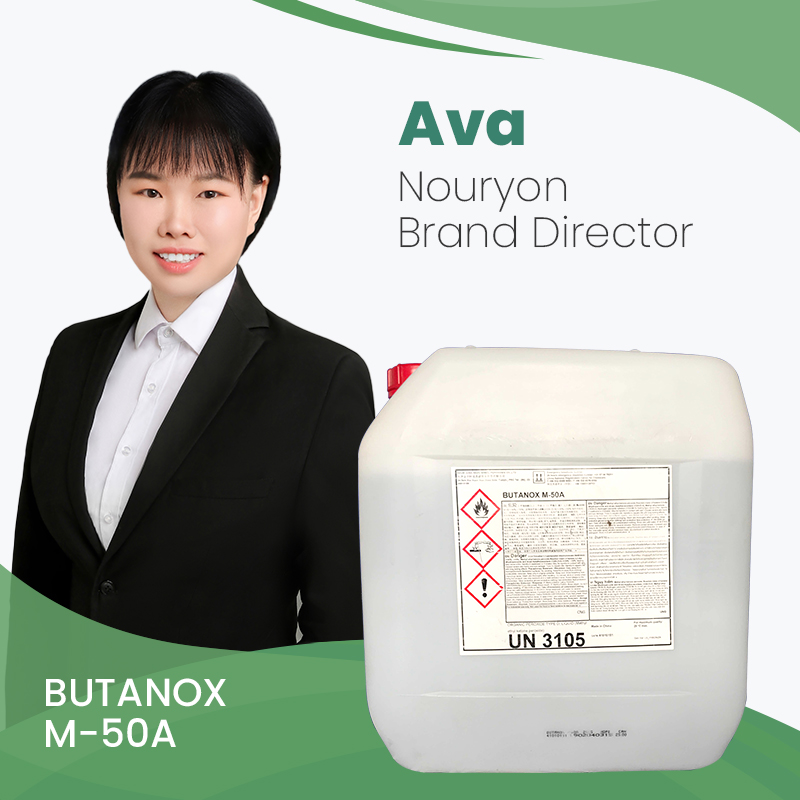Insight into China's MEKP Market: Key Production and Quality Metrics
 May 10, 2024|
May 10, 2024| View:129
View:129
Hello! Thank you for visiting our products, we always put product quality and customer support first, if the product is right for you please contact our expert!
Ava, the team leader of Evergreen Chemicals OP expert database and the brand director of Nouryon, participated in the drafting of OP safety standards and is well versed in the global supply relationship of peroxides.
AVA
Nouryon Brand DirectorChina's maximum production capacity for the organic peroxide MEKP (Methyl Ethyl Ketone Peroxide) stood at 45,000 tons as of 2023. Here are several key points you need to know about MEKP.
Key Indicators of MEKP
The active oxygen content and water content are crucial. Currently, most factory COAs (Certificates of Analysis) only provide the active oxygen content. The water content, as an internal control indicator, is rarely disclosed externally.
Active Oxygen in MEKP Peroxide
The active oxygen content refers to the effective oxygen content; the oxygen content in hydrogen peroxide, an intermediate, should not be included in this indicator. Internationally, especially in the EU, there is a safety requirement that the active oxygen content must be below 10%. Currently, there is no national standard for MEKP in China.
Hydrogen Peroxide Content in MEKP Peroxide
The content of hydrogen peroxide in MEKP deserves attention, as dehydration during MEKP production is a high-risk and core process. The lower the water content in MEKP, the higher its safety and quality. High-quality MEKP often uses a low-temperature distillation method for dehydration, a process that tests the technical capacity of the factory and is also labor-intensive, limiting the production capacity per unit time and increasing production costs. The market price for MEKP with a water content of over 15% is around 20 RMB. For those priced above 20 RMB, the water content may be below 10%.

Solvents in MEKP
The conventional solvents for MEKP include DEG (Diethylene Glycol) and DMP (Dimethyl Phthalate). Inferior and cheaper MEKP may contain third-grade solvents like methanol. DEG and DMP are more costly but they play a significant role in desensitization and stabilization, making the transportation and production process safer. Certain countries have restrictions on plasticizers in fats; when MEKP is used in products that come into contact with the human body, such as buttons, kitchen countertops, and drinking water tanks, MEKP that does not contain plasticizing solvents, such as BUTANOX-M-50A, is required.
Photo Credit: NOURYON












